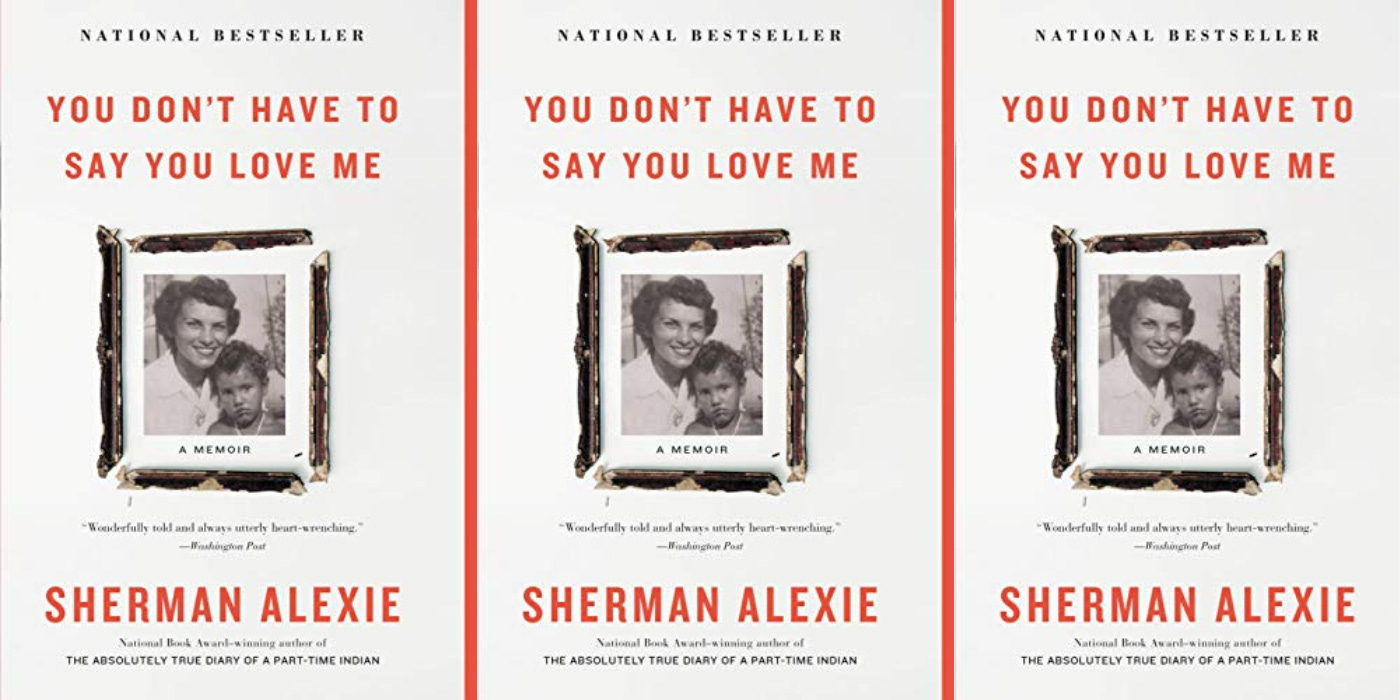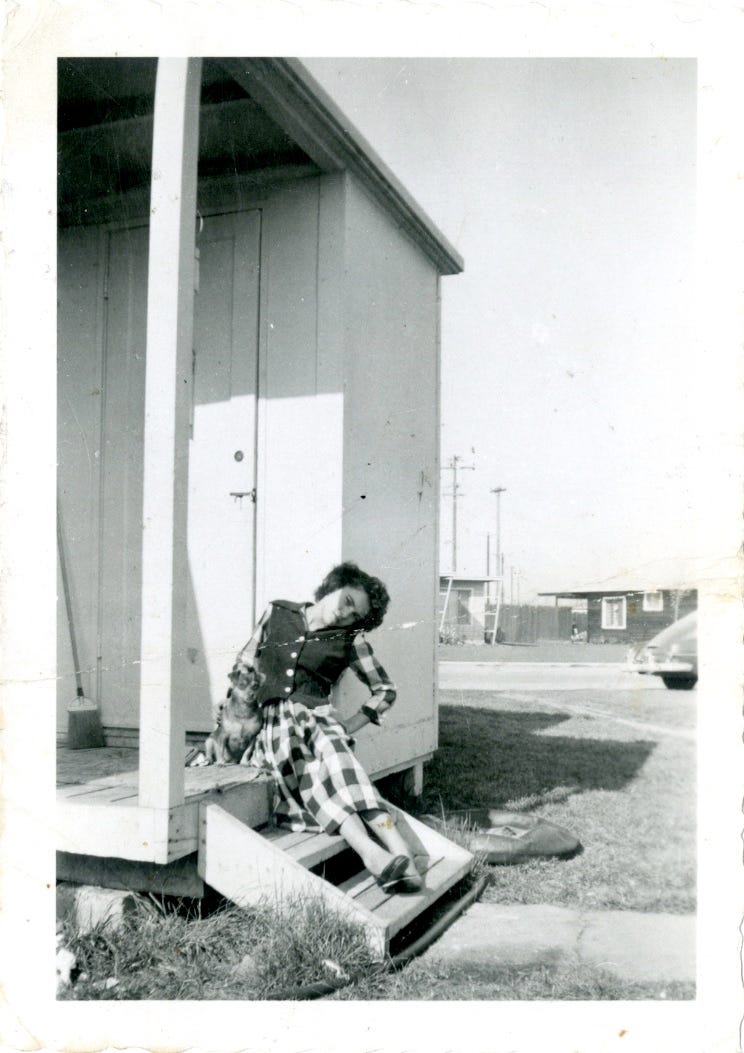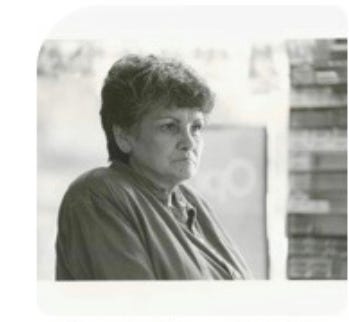Flight Hours
a poem from my memoir with a new audio introduction and reading
That bird, small and brown, wrecked against our kitchen window and crashed dead to our deck. "Avian suicide," I said and walked out to retrieve its broken-feathered body— and then I thought of my mother's coffin being carried to the grave by her pallbearers. And realized that I would be the bird's pallbearer. And that realization made me feel responsible for the bird, as if its death needed to matter, as if it weren't just one more member of an essentially endless species. So I sat beside that dead bird and improvise-hummed an honor song— and startled when that bird lifted its head as if my song were a gift that brought it back to life. Of course, I didn't resurrect that bird. It had knocked itself out against our window and was now regaining consciousness. But had it broken something? Maybe a wing? Would it be able to fly? Perhaps I'd have to watch it simply and slowly die— but I knew that I shouldn't let the bird suffer. I knew I wouldn't be able to pick it up and snap its neck—that mercy would be far too violent. And as I imagined it struggling against my fingers, I knew I wasn't cruel enough to smother it. So what to do? How long would it take to die? Minutes or hours? A day? And what would happen to the defenseless bird if I left it alone on our deck? It would be easy prey for all of the neighborhood predators—insects, rodents, other birds, and all of the mass-murdering house cats. I couldn't stand the thought of that poor bird being eaten alive while it was potentially paralyzed. So, yes, I was a weak-ass moralist unable to kill the bird and unsure if I had the patience to stand guard as it died. Then, as I pondered its fate, the bird lifted a wing— Ah, such a brave bird, reaching toward the sky, I suppose, or toward its God. I don't know how birds pray. But this bird shook that wing, shook that wing, and then it raised its other wing and shook it, too. Oh, I praised that bird as it shook and shook and shook its wings, alternately and simultaneously. And then that little bird stood— I wasn't home on the reservation when my mother died. My wife, sons, and I had visited her on Father's Day, almost two weeks before her death, and we'd said our good-byes. During our mother's final days and hours, my sisters and niece gently tried to get me to return. But I did not. I had thanked my mother for my life. I had told her that I loved her. Those weren't lies. And they seemed to give me enough closure to survive. I don't feel guilty about not being with my mother when she died. Or maybe I feel the proper amount of guilt. Or maybe I will feel more guilt as time passes. I feel more guilt as time passes. I'm never sure how to define my grief over my mother's death. But I certainly feel terrible that I hurt my sisters and niece. And yet, I'd also known that many other people would come to help my sisters and niece. When my mother died, there were at least ten cousins and friends in the room. My mother was surrounded by her most beloved ones. Everybody except me— I applauded when that proud bird climbed to its feet and shook, shook, shook, shook, shook, and shook its entire body. Was it seizing? Or, wait, shit, were those its death throes? No, no, I didn't think so because the bird walked slow circles around the deck, little oval miracles that became larger miracles as the minutes passed. And, as it paced, the bird continued to shake and shake and shake its head, wings, body, and feet, but I wasn't sure why. Then it walked to the edge of our deck, paused, and lifted into flight, flew around the corner of our house and winged its way out of my life— a few weeks after our mother's funeral, and a few days after my adventure with the bird, I sat with my therapist and told her about the little creature's pacing and shaking. "I don't know if I ever told you this," my therapist said. "But I'm a birder. I love birds. And when they hit a window like that, or get hurt in any significant way, they have this ritual. They shake off the pain. They shake off the trauma. And they walk in circles to reconnect their brain and body and soul. When your bird was walking and shaking, it was remembering and relearning how to be a bird." Oh, wow. I couldn't say much after that intense revelation, but my therapıst continued. "We humans often lose touch with our bodies," she said. "We forget that we can also shake away our pain and trauma." It seemed too simple. I openly doubted that it could be true— but, that night, I stood on our deck in the same place where that bird had fallen, arose, walked, shook, and flew. And I performed that ritual, too. I shook my arms, legs, head, and body. I paced in small circles that grew larger by the minute. I reached toward every other constellation. I reached toward my sisters, niece, and brothers. I reached toward the memory of my mother, and as I continued to shake, I felt a sparrow-sized pain rise from my body and—wait, wait, wait— please listen. I don't know how or when my grieving will end, but I'm always relearning how to be human again.
Buy the book:
From your favorite independent bookstore here.
From Amazon here.
From Barnes & Noble here.







Thank you for this gift of such beauty, I think I shall never forget that bird and if I am lucky, I will remember how to be human again!
I will join the group in the bird dance, too!
And read your memoir.
I struggle with grieving my parents death. And though I know it hasn’t come easy, your precious gift opens that door a crack further for me to go on with my own grieving.
In case I haven’t said it before, I actually moved to the Northwest 23 years ago after reading as much of your work as I could find.
I just wanted to dwell in a place that held someone like you.
Finding you again in substack makes my email seem miraculous.
Thank you again.
Ann-Marie